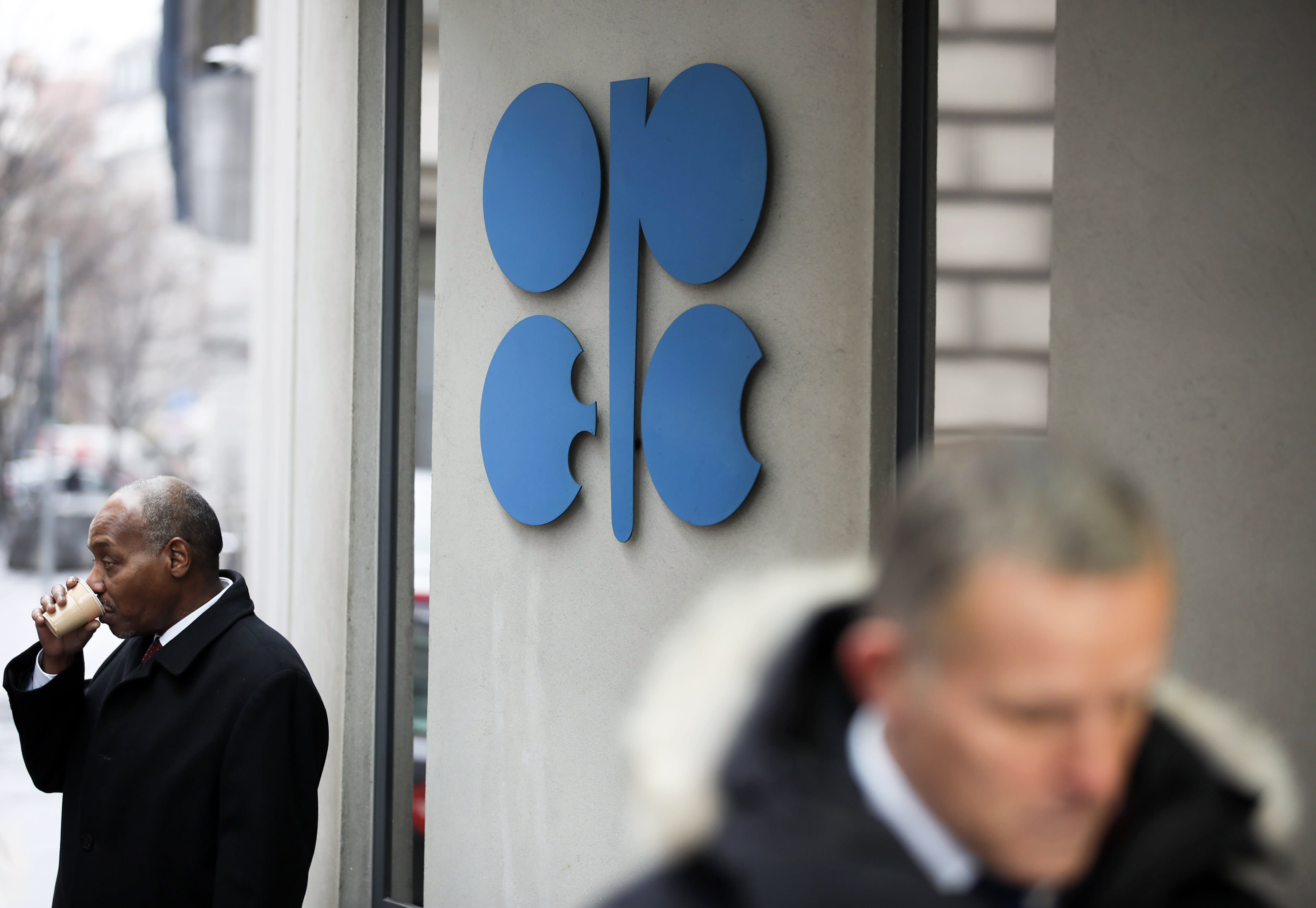
An OPEC sign hangs outside the OPEC Secretariat in Vienna, Austria, on Nov. 29, 2017.
Akos Stiller | Bloomberg | Getty Images
OPEC and its oil-producing allies reportedly agreed to extend the historic 9.7 million barrels per day production cut that was set to expire at the end of June, according to two sources familiar with the matter.
The cut will be extended through the end of July, and the group is expected to confirm the agreement at its meeting on Saturday, which kicked off a little before 8:30 a.m. ET.
The closely watched meeting was initially scheduled for June 9-10, but was pulled forward after Iraq agreed to comply with its quota.
On Friday West Texas Intermediate jumped 5.72% to settle at $39.55, while international benchmark Brent crude gained 5.78% to settle at $42.30. It was each contract's sixth straight week of gains, and the highest settle since March 6.
"OPEC+ looks set to formally announce a one-month deal extension at [Saturday's] ministerial meeting," said Helima Croft, RBC's global head of commodities strategy. "Nevertheless, there could be some last minute theatrics at the virtual gathering and we suspect that some individual producer performance will still be less than perfect on a go-forward basis."
Under the current agreement, which was set during an extraordinary multi-day meeting in April, the 23-member group cut production by 9.7 million bpd beginning May 1 and through the end of June. The cuts would then begin to taper. From July through the end of 2020, 7.7 million bpd would be taken offline, followed by 5.8 million bpd from January 2021 through April 2022.
The cut — the largest in history — came as oil demand fell off a cliff due to the coronavirus pandemic. The International Energy Agency estimates that about one quarter of demand was sapped in April as billions of people around the world stayed home in an effort to slow the spread of Covid-19. The hit to demand came as producers continued to pump oil, which sent WTI tumbling into negative territory for the first time on record, while Brent fell to a 20-year low.
Since then, prices have steadily climbed higher as economies begin to reopen and as producers further rein in output. In the U.S., production has fallen from a record 13.1 million bpd in March to 11.2 million bpd, according to the U.S. Energy Information Administration. WTI is still about 40% below its January high of $65.65, however.
"Although small in scale, this cut is however important in squaring the group's strategy, which has this year alone swung from price focused cuts, to market-share recapture, to internal price war to finally a record large cut," Goldman Sachs' Damien Courvalin wrote in a note to clients Friday.
- CNBC's Brian Sullivan and Michael Bloom contributed reporting.
https://news.google.com/__i/rss/rd/articles/CBMiZWh0dHBzOi8vd3d3LmNuYmMuY29tLzIwMjAvMDYvMDYvb3BlYy1hbmQtYWxsaWVzLXJlcG9ydGVkbHktYWdyZWUtdG8tZXh0ZW5kLXJlY29yZC1wcm9kdWN0aW9uLWN1dC5odG1s0gFpaHR0cHM6Ly93d3cuY25iYy5jb20vYW1wLzIwMjAvMDYvMDYvb3BlYy1hbmQtYWxsaWVzLXJlcG9ydGVkbHktYWdyZWUtdG8tZXh0ZW5kLXJlY29yZC1wcm9kdWN0aW9uLWN1dC5odG1s?oc=5
2020-06-06 13:36:17Z
52780822387637
Tidak ada komentar:
Posting Komentar